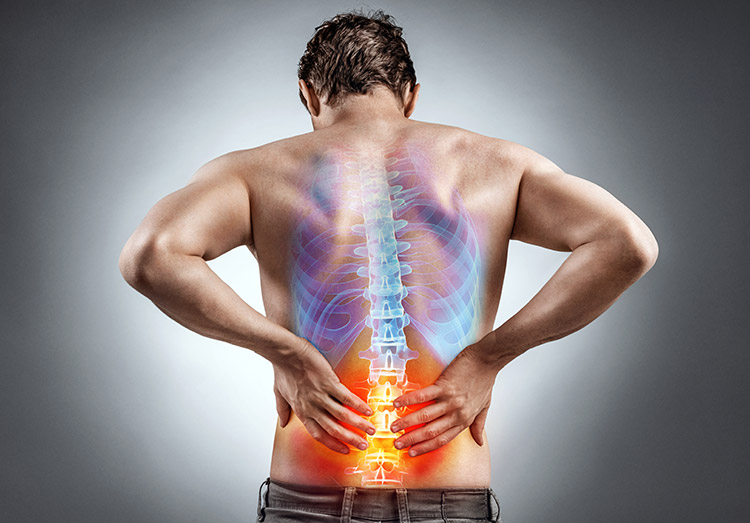Nerve pain can be confusing and even frightening. But what causes nerve pain, how do you know you have nerve problems, and what does it feel like?
Nerve pain is a type of pain that is caused, as you may expect from the name, by damage or injury, or compression of the nerves. The nervous system is responsible for transmitting messages from the brain to the body and vice versa, and any disruption in this process can result in pain.
Types of Nerve Pain
There are many different types of nerve pain, each with its own symptoms and causes. Some forms of nerve pain are localized, and others experience widespread nerve pain. Some common types of nerve pain include:
- Neuropathy: This is a general term for many types of nerve damage. Generally, Healthline explains, “Neuropathic pain is a pain condition that’s usually chronic.” This means that it may not go away over time. Some patients describe experiencing nerve pain all over their body at night.
- Neuralgia: Healthline says, “Neuralgia is a type of pain that’s caused by a nerve problem, and neuropathy is a type of nerve damage.” This is a type of nerve pain that is characterized by sharp, stabbing pain.
- Radicular pain: This is a type of nerve pain that radiates from the spine to the extremities. For some, radicular nerve pain gets worse before it gets better, and for others, it seems to resolve simply.
Causes of Nerve Pain
There are several conditions that can cause nerve pain, including:
- Peripheral neuropathy: damage to the nerves outside of the brain and spinal cord, often caused by diabetes, infections, or trauma.
- Shingles: a viral infection that affects nerve fibers and causes a painful rash.
- Multiple sclerosis: a disease that damages the protective covering of nerve fibers, leading to pain and other symptoms.
- Carpal tunnel syndrome: a condition caused by compression of the median nerve in the wrist, resulting in pain, numbness, and tingling in the hands and fingers.
- Spinal cord injury: damage to the spinal cord can disrupt nerve signals and result in pain.
- Nerve compression: sciatica, spinal stenosis, or another condition in the spine that causes nerve pain in the back, legs, hips, or arms.
Symptoms of Nerve Pain
The symptoms of nerve pain can vary depending on the type of pain and the cause. Some common symptoms of nerve pain include:
- Pain: The pain can be sharp, stabbing, or burning.
- Numbness: The numbness can be in the hands, feet, or other parts of the body.
- Tingling: The tingling can be in the hands, feet, or other parts of the body.
- Weakness: The weakness can be in the hands, feet, or other parts of the body.
Diagnosis of Nerve Pain

Depending on what your nerve pain feels like, and where you are experiencing it, your doctor will work to diagnose the cause of the pain. Generally, your doctor will rely on your symptoms and medical history. The doctor may also order imaging tests, such as X-rays or MRIs, to look for the cause of the nerve pain.
Treatment of Nerve Pain
The treatment of nerve pain, or neuropathic pain, depends on the underlying cause of the pain. In some cases, treating the underlying condition may help alleviate the pain. However, in many cases, nerve pain is difficult to treat and may require a combination of approaches. Some common treatments for nerve pain include:
Medications
There are several medications that can help reduce nerve pain, including antidepressants, anticonvulsants, and opioids. These medications work by altering the way the nervous system processes pain signals. As we mention elsewhere in our blog, “On your doctor’s advice, try over-the-counter pain relievers such as ibuprofen or acetaminophen.”
Physical therapy
Exercise and physical therapy can help improve muscle strength and flexibility, reduce inflammation, and improve overall function. This can help alleviate nerve pain in some cases.
Nerve blocks
Local anesthetics or other medications can be injected into the area around the affected nerve to block pain signals.
Transcutaneous electrical nerve stimulation (TENS)
This therapy uses a small device that sends electrical impulses to the affected area, which can help reduce pain.
Surgery
In some cases, and only as a last resort, surgery may be necessary to relieve nerve pain. This may involve correcting the factors that are compressing a nerve, or repairing nerve damage.
If you are experiencing nerve pain, you’ll want to see your doctor right away.



Recent Comments